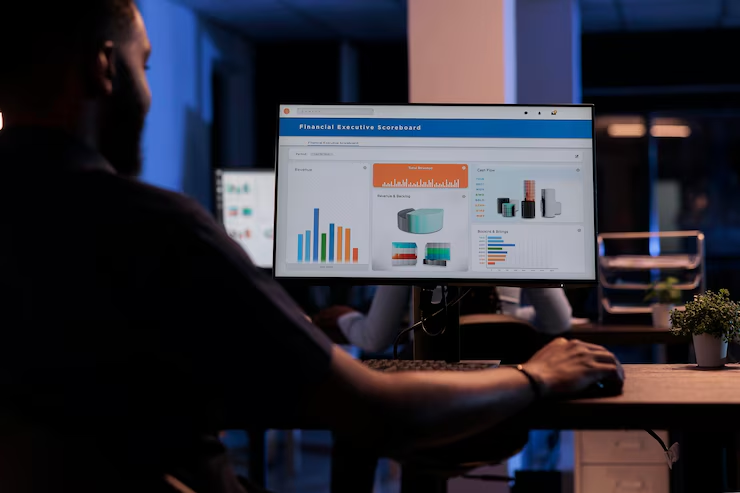Are you ready to take your e-commerce business to the next level in Australia? A well-crafted website is essential to attract customers and drive sales. Hiring the right web developer is crucial in achieving this goal. In this blog post, we’ll delve into the key factors to consider when selecting a web developer for your Australian e-commerce website. From understanding your specific needs to evaluating their skills and experience, we’ll provide you with valuable insights to make an informed decision.
Identify Your Needs Before Hiring a Web Developer
Identifying Your Business Goals
Before you begin searching for a web developer, it’s essential to have a clear understanding of your business goals. First, consider what you want to achieve with your e-commerce site—whether it’s boosting sales, increasing brand awareness, or enhancing customer engagement. Additionally, think about the specific products or services you are offering. Understanding the details of your inventory will help shape the design and functionality of your website. Lastly, knowing your target audience, including their preferences and shopping behaviors, is crucial as it will guide the overall development process.
Defining Essential Website Features
Once you’ve established your goals, it’s important to define the essential features your e-commerce website must have. A functional and user-friendly shopping cart is crucial to allow customers to easily add items and proceed to checkout without any hassle. Secure payment processing is also vital, ensuring that a reliable gateway supports multiple payment methods. Effective inventory management systems are necessary for tracking and managing stock levels efficiently. Given the increasing use of mobile devices, it’s essential that your site is mobile-responsive to provide an optimal user experience. Additionally, incorporating features such as customer reviews, product recommendations, and social media integration can help enhance customer engagement.
Budgeting for Development Costs
Understanding the cost structure of web development is crucial to prevent overspending. Several factors influence the overall cost, including the size of the project, the expertise of the developer, and the specific functionalities required. It’s important to create a comprehensive budget that accounts not only for the initial development but also for ongoing maintenance costs. Additionally, exploring different pricing models, such as fixed project fees, hourly rates, or retainers, will help you decide which option best suits your project’s needs.
Choosing the Right Type of Web Developer
When it comes to building digital solutions, selecting the right type of developer can significantly impact your project’s success. At Optominds, we understand the importance of having the right expertise to meet your specific needs, whether you are developing a website, mobile app, or a complex software solution.
1. Front-end Developers
Front-end developers are essential for crafting the user interface and ensuring a seamless user experience. They focus on creating visually appealing, responsive, and intuitive layouts using technologies like HTML, CSS, and JavaScript. If you need a stunning and functional user interface, front-end developers are your go-to experts.
2. Back-end Developers
Back-end developers work behind the scenes to manage the server, database, and application logic. They ensure that your application runs smoothly by writing code that powers the core functionality. If your project requires data management, server-side operations, or integrations with third-party services, back-end developers are crucial.
3. Full-stack Developers
For projects requiring both front-end and back-end expertise, full-stack developers offer a comprehensive solution. They can handle everything from designing the user interface to developing server-side logic. Full-stack developers are ideal for smaller teams or projects where versatility is essential.
4. Mobile App Developers
If you’re looking to develop an app for iOS or Android, mobile app developers specialize in building applications for these platforms. They are skilled in programming languages like Swift, Kotlin, and React Native. Whether it’s a simple app or a feature-rich platform, mobile app developers bring your ideas to life.
At Optominds, we help you choose the right developer for your project, ensuring efficient development and outstanding results.
The Hiring Process
Creating a Job Description
A well-crafted job description is essential for setting clear expectations. It should be clear and concise, outlining your specific needs, including the required technical skills and relevant experience. Additionally, it’s important to highlight the developer’s responsibilities during the project, ensuring they understand their role. Be sure to specify any preferred platforms or software they need to be proficient in to meet your project requirements.
Sourcing Candidates
Utilizing the right channels is key to finding qualified candidates. Online platforms like LinkedIn, Upwork, and local job boards can be effective tools for posting job openings and sourcing potential developers. Additionally, leveraging personal networks can uncover candidates with proven track records, often through trusted referrals. Engaging in industry-specific forums and communities can also help you connect with skilled developers who are knowledgeable about your field.
Screening and Interviewing Candidates
When developing a structured interview process to evaluate potential hires, it’s important to focus on several key areas. Begin by asking questions about their past projects, specifically their role and contributions to those initiatives. This helps gauge their experience and capabilities. You can also administer practical problem-solving tests to assess how well they adapt and address real-world challenges. Finally, thoroughly review the candidates’ portfolios to evaluate the quality and relevance of their previous work, ensuring it aligns with your project’s needs.
Ongoing Support and Evaluation
Testing and Quality Assurance
Testing is essential before launching your website to ensure everything functions as intended. It’s important to conduct thorough testing to confirm that all features work smoothly without issues. After the site goes live, gathering user feedback is crucial for identifying any problems that may need attention. Additionally, make sure the website meets usability standards, ensuring it is accessible and easy to navigate for all users.
Continuous Improvement and Updates
To ensure your website remains relevant, it’s important to plan for continuous improvements. This involves scheduling regular check-in meetings to discuss performance and support requirements, as well as analyzing user data to identify potential areas for future enhancements. Additionally, establishing a strategy for regular software updates will help maintain security and keep your site functioning optimally.
Measuring Success
To effectively gauge the success of your e-commerce website, it’s important to define specific metrics. Key Performance Indicators (KPIs) such as sales growth and conversion rates are vital for tracking overall performance. Additionally, leveraging user analytics tools will allow you to monitor visitor behavior on your site, enabling you to make necessary adjustments. Regularly reviewing sales data and customer feedback can also uncover valuable insights and opportunities for improvement, helping you enhance the user experience and drive better results.
FAQs
What is the average cost of hiring a web developer in Australia?
The cost can vary depending on experience and project scope, typically ranging from AUD 50 to AUD 150 per hour.
How long does it take to develop an e-commerce website?
Development time can vary but generally ranges from a few weeks to several months, depending on the complexity of the site.
Should I choose a freelancer or an agency for my e-commerce site?
It depends on your project size, budget, and need for ongoing support. Freelancers may be more cost-effective, while agencies can offer a broader range of services.
What platform should I choose for my e-commerce website?
Popular platforms include Shopify, WooCommerce, and Magento, each with its own strengths based on your business model and technical capabilities.
How can I ensure my website is secure?
Implement SSL certificates, maintain regular software updates, and conduct vulnerability assessments to enhance security.
Conclusion
In conclusion, selecting the right web developer for your e-commerce website involves a thoughtful assessment of your unique requirements, the essential skills needed, and the type of developer that aligns with your project. By adhering to a structured hiring process and fostering a strong, ongoing relationship with your developer, you can guarantee that your website will not only achieve your initial objectives but also adapt and grow alongside your business. For businesses seeking exceptional development services, Optominds stands out as the best web developer provider in Australia, ready to help you realize your e-commerce vision.

